#Lewis Niven
Text
Absolutely phenomenal large scale cutaways I found on Art Station of a Constitution-class refit vessel, the U.S.S. Yorktown, NCC-1717.







The Yorktown was rechristened U.S.S. Enterprise NCC-1701-A, and assigned to Captain Kirk and crew at the end of Star Trek lV: The One With The Whales The Voyage Home.
I'm not sure who the artist is (I think Lewis Niven?). Lemme know if you do so that I can properly credit them.
#Star Trek#U.S.S. Yorktown#NCC-1717#Constitution-class refit#Starfleet#Starfleet starships#starships#cutaway diagram#Lewis Niven
370 notes
·
View notes
Link
“Dodsworth”: William Wyler's masterpiece, the best movie ever made about the fear of growing old. It was Wyler's first Oscar nomination.
#william wyler#samuel goldwyn#sinclair lewis#ruth chatterton#mary astor#walter huston#maria ouspenskaya#david niven#rudolph maté#sidney howard
0 notes
Text
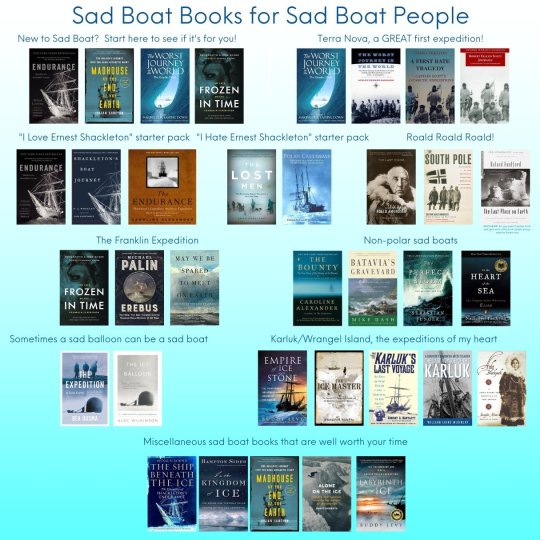
I guess it's time to start moving some content from twt over here! For those who don't know me, I'm a public librarian with a special interest in polar and nautical history, and I love nothing more than connecting readers with good books. I've managed to convert some friends to my way of thinking, and one of them coined the phrase "sad boat books" to describe the types of books that I'm always reading and recommending. Here is my first list of sad boat books-- I can personally vouch for all of them!
New to sad boat? Start here to see if it’s for you!
Endurance by Alfred Lansing
Madhouse at the End of the Earth by Julian Sancton
The Worst Journey in the World- The Graphic Novel Volume 1: Making Our Easting Down adapted by Sarah Airriess from the book by Apsley Cherry-Garrard
Frozen in Time: The Fate of the Franklin Expedition by Owen Beattie and John Geiger
Terra Nova, A GREAT first expedition!
The Worst Journey in the World- The Graphic Novel Volume 1: Making Our Easting Down adapted by Sarah Airriess from the book by Apsley Cherry-Garrard
The Worst Journey in the World by Apsley Cherry-Garrard
A First Rate Tragedy by Diana Preston
Robert Falcon Scott Journals- Captain Scott’s Last Expedition by Robert Falcon Scott
“I Love Ernest Shackleton” starter pack
Endurance by Alfred Lansing
Shackleton’s Boat Journey by Frank Worsley
The Endurance by Caroline Alexander
“I Hate Ernest Shackleton” starter pack
The Lost Men by Kelly Tyler-Lewis
Polar Castaways by Richard McElrea and David Harrowfield
Roald Roald Roald!
The Last Viking: The Life of Roald Amundsen by Stephen Bown
The South Pole by Roald Amundsen
The Last Place on Earth by Roland Huntford*
*DISCLAIMER: this guy hates Captain Scott and gets most of the Scott details wrong, read for Roald only!
The Franklin Expedition
Frozen in Time: The Fate of the Franklin Expedition by Owen Beattie and John Geiger
Erebus by Michael Palin
May We Be Spared to Meet on Earth: Letters of the Lost Franklin Expedition edited by Russell A. Potter, Regina Koellner, Peter Carney, and Mary Williamson
Non-polar sad boats
The Bounty by Caroline Alexander
Batavia’s Graveyard by Mike Dash
The Perfect Storm by Sebastian Junger
In The Heart of the Sea by Nathaniel Philbrick
Sometimes a sad balloon can be a sad boat
The Expedition by Bea Uusma
The Ice Balloon by Alec Wilkinson
Karluk/Wrangel Island, the expeditions of my heart
Empire of Ice and Stone: The Disastrous and Heroic Voyage of the Karluk by Buddy Levy
The Ice Master by Jennifer Niven
The Karluk’s Last Voyage by Robert A. Bartlett
The Last Voyage of the Karluk: A Survivor’s Memoir of Arctic Disaster by William Laird McKinlay
Ada Blackjack: A True Story of Survival in the Arctic by Jennifer Niven
Miscellaneous sad boat books that are well worth your time
The Ship Beneath the Ice: The Discovery of Shackleton’s Endurance by Mensun Bound
In The Kingdom of Ice: The Grand and Terrible Polar Voyage of the USS Jeannette by Hampton Sides
Madhouse at the End of the Earth by Julian Sancton
Alone on the Ice: The Greatest Survival Story in the History of Exploration by David Roberts
Labyrinth of Ice: The Triumphant and Tragic Greely Polar Expedition by Buddy Levy
If you read and enjoy any of these, please let me know!
2K notes
·
View notes
Text
Since there’s now a whole book about how easy it is to confuse Naomi Klein/Wolf, here are some other people whose similar names always confuse me:
Eugenie Scott/Clark: One is a shark biologist, one is on the board of Skeptical Inquirer?
David/Larry Niven: One is an actor, one is a writer?
David/John Byrne: One is a musician, one is a comic book writer?
Laird/Lewis Hamilton: One is a race car driver, one is a surfer?
A. O. Scott/E. O. Wilson: One is a biologist, one is a film critic?
Thora/Tory Burch/Bruno: One is an actor, the other one is… also an actor? And the last one is in charge of United Launch Alliance? There may also be a similarly named “Tori” somewhere in the mix?
#I did finally work out Anne Rice vs Ayn Rand though!#The Naming of Names#name's the same#(well almost)
11 notes
·
View notes
Photo
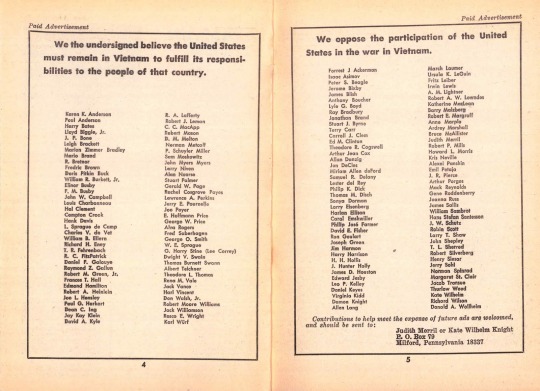
Vietnam War - Galaxy Science Fiction Magazine, June 1968
Sourced from: http://natsmusic.net/articles_galaxy_magazine_viet_nam_war.htm
Transcript Below
We the undersigned believe the United States must remain in Vietnam to fulfill its responsibilities to the people of that country.
Karen K. Anderson, Poul Anderson, Harry Bates, Lloyd Biggle Jr., J. F. Bone, Leigh Brackett, Marion Zimmer Bradley, Mario Brand, R. Bretnor, Frederic Brown, Doris Pitkin Buck, William R. Burkett Jr., Elinor Busby, F. M. Busby, John W. Campbell, Louis Charbonneau, Hal Clement, Compton Crook, Hank Davis, L. Sprague de Camp, Charles V. de Vet, William B. Ellern, Richard H. Eney, T. R. Fehrenbach, R. C. FitzPatrick, Daniel F. Galouye, Raymond Z. Gallun, Robert M. Green Jr., Frances T. Hall, Edmond Hamilton, Robert A. Heinlein, Joe L. Hensley, Paul G. Herkart, Dean C. Ing, Jay Kay Klein, David A. Kyle, R. A. Lafferty, Robert J. Leman, C. C. MacApp, Robert Mason, D. M. Melton, Norman Metcalf, P. Schuyler Miller, Sam Moskowitz, John Myers Myers, Larry Niven, Alan Nourse, Stuart Palmer, Gerald W. Page, Rachel Cosgrove Payes, Lawrence A. Perkins, Jerry E. Pournelle, Joe Poyer, E. Hoffmann Price, George W. Price, Alva Rogers, Fred Saberhagen, George O. Smith, W. E. Sprague, G. Harry Stine (Lee Correy), Dwight V. Swain, Thomas Burnett Swann, Albert Teichner, Theodore L. Thomas, Rena M. Vale, Jack Vance, Harl Vincent, Don Walsh Jr., Robert Moore Williams, Jack Williamson, Rosco E. Wright, Karl Würf.
We oppose the participation of the United States in the war in Vietnam.
Forrest J. Ackerman, Isaac Asimov, Peter S. Beagle, Jerome Bixby, James Blish, Anthony Boucher, Lyle G. Boyd, Ray Bradbury, Jonathan Brand, Stuart J. Byrne, Terry Carr, Carroll J. Clem, Ed M. Clinton, Theodore R. Cogswell, Arthur Jean Cox, Allan Danzig, Jon DeCles, Miriam Allen deFord, Samuel R. Delany, Lester del Rey, Philip K. Dick, Thomas M. Disch, Sonya Dorman, Larry Eisenberg, Harlan Ellison, Carol Emshwiller, Philip José Farmer, David E. Fisher, Ron Goulart, Joseph Green, Jim Harmon, Harry Harrison, H. H. Hollis, J. Hunter Holly, James D. Houston, Edward Jesby, Leo P. Kelley, Daniel Keyes, Virginia Kidd, Damon Knight, Allen Lang, March Laumer, Ursula K. LeGuin, Fritz Leiber, Irwin Lewis, A. M. Lightner, Robert A. W. Lowndes, Katherine MacLean, Barry Malzberg, Robert E. Margroff, Anne Marple, Ardrey Marshall, Bruce McAllister, Judith Merril, Robert P. Mills, Howard L. Morris, Kris Neville, Alexei Panshin, Emil Petaja, J. R. Pierce, Arthur Porges, Mack Reynolds, Gene Roddenberry, Joanna Russ, James Sallis, William Sambrot, Hans Stefan Santesson, J. W. Schutz, Robin Scott, Larry T. Shaw, John Shepley, T. L. Sherred, Robert Silverberg, Henry Slesar, Jerry Sohl, Norman Spinrad, Margaret St. Clair, Jacob Transue, Thurlow Weed, Kate Wilhelm, Richard Wilson, Donald A. Wollheim.
20 notes
·
View notes
Text
7 deadly sins: All about gluttony (1)
I have been talking around with other fellow members of the kink community about the seven deadly sins – and of course, our favorite sin of all, gluttony. The seven deadly sins have always been an obsession of mine for quite some times, leading me to extensively study them. And since I am trying to get back into the kink wagon I thought – why not actually make a full, extensive, detailed but still general enough expose about gluttony, to understand what this sin truly is, where it came from and what it truly entails?
If you do not like this kind of religious-social-historical-academical posts, you are free to scroll pass. If you are not part of our kinks, and merely want to inform yourself about the sin of gluttony, feel free to join in! Or to be clearer…
WARNING: This is not a kink post, but if you find yourself discovering this place, know that it is a kink blog, and this is why I will include some kink references inside the text. But don’t worry, reading this text won’t make you a “perv”. And if you’re here for just pure kink, well sorry, here we do non-kink stuff too. Enjoy
I) What is gluttony?
For many people, gluttony is just “Eating too much.” For them, that’s it, and this is why gluttony is the least intimidating, frightening or important of the seven deadly sins. To take back a very recent topic, this idea of gluttony being about just over-eating and “being a fatass” popped its head back up when the indie cartoon-webseries “Helluva Boss” revealed its design for Beelzebub, the demon of gluttony, centered around alcohol, candy and honey rather than just obesity and slobs everywhere. Many people were confused or complained as to why gluttony wasn’t properly depicted – when in fact it was!
Being while eating too much IS gluttony, gluttony isn’t JUST eating too much. Like the “all thumbs are fingers but not all fingers are thumbs” saying. To explain what gluttony truly is I will point out something that was repeated through two works exploring the seven deadly sins: Niven and Pournelle’s Inferno, and C.S. Lewis’ Screwtape. In both works of fiction, among the sinners of gluttony, can be found the very opposite of over-eaters. On one side, a strict and austere old woman who eats very little and keeps complaining about every kind of food she meets, on the other a fitness nut and health-obsessed gym-trainer who was constantly on a diet. These sinners surprise as they do not seem to be gluttonous, and yet they are by the original and essential definition of the sin… because they are obsessed with food. They let food dictate their life, and to take back a famous saying of the Bible, they allow their belly to become their God. Dante described the seven deadly sins are corrupted, misguided or exaggerated forms of love – unhealthy love. And gluttony is an unhealthy, excessive or corrupted love for food. A love turned into obsession – and while this obsessive love can manifest in uncontrolled cravings and overeating, such an obsession can be equally found among picky eaters who develop extremely specific and limiting eating habit, or in fitness gurus who are obsessed with measuring every portion of what they eat and keep calculating their calories intake to the day.
Gluttony is about making food, and the act of eating, more than what it is and more than what it is supposed to be. As the common saying goes, you eat to live – you do not live to eat.
Mind you, these interpretations are actually quite recent and prevalent of the modern days (20th century and onward), in older times the limiting and restricting food obsessions would have been seen as being actually GOOD by the religion – and we’ll talk about that later – but these examples serve to get my point across. Gluttony is much more than just eating too much, it is a fascinating world of nuances that I invite you to explore with me.
II) The types of gluttony
To quote Queen Bee-lzeebub’s catchphrase in Helluva Boss, “I am what you want… No what you need.” This is true for gluttony, as much as it is true for most of the seven deadly sins. The deadly sins are about people living in their personal wants, in the excess, in the superfluous – not actually taking care of what they truly need, in their body or in their mind. Getting money to live is normal, because it is what you need to survive in a society – but hoarding and accumulating enormous amounts of money you will never spend becomes is not needed, because it delves into the realm of the obsession and the excessive. The same way, to eat in itself is not something evil – because we need to eat to live, it is part of the very workings of nature. Gluttony is specifically about when we eat when we do not need it, about eating for oneself and for personal whims and desires, not out of hunger or nutrition. All the deadly sins are born from pride, and all the deadly sins are a form of selfishness.
Mind you, this idea comes as a double-edged blade. On one side, this concept is good and “positive” because it enforced before its time a message we truly need to hear and live by today – in our society of pollution, massive waste, over-production and over-consumption, we have forgotten that sometimes we need to restrict ourselves to what we just need, that our “wants” are supposed to be secondary before what is actually needed to live and survive, that a whim is not a need, that simplicity is a way to survive… It all makes sense when you consider the time, society and situation the sin of gluttony was created: a world where food was scarce and not cheap, a world where famines came regularly, a world where a lot of toil and hard work was needed to obtain your meal… On the other side, this concept is also “negative” and quite bad – especially in the way the Church used it. Because while it is true that our needs should come before our wants, Christianity (especially Catholicism) went many times to the extreme of this idea, by denying, rejecting or demonizing the concept of want and of personal pleasure. Take the sin of lust for example: in the “extreme-practical” mindset of religion, sex is only good if it is used for marital duties and to procreate. By logic, all sex that does not give birth, all sex that is not with a husband or a wife, all sex that is done merely for its pleasure, for itself, for oneself, becomes “evil” and “sinful”. We know today that sex is a natural thing and that there is no shame in having recreational and non-reproductive sex – but the Church for centuries put in people’s head the idea that not-needed sex was evil, and that wanting to have sex was devilish. All of this to say, when it comes to Christianity’s appreciation of sin, there’s always good parts that are timeless, and there’s always bad parts that are outdated.
So – gluttony is eating out of want, not out of need. Of course we fall back on the “overeating” aspect, but you might be surprise to learn it is much more nuanced than that. Saint Thomas of Aquinas, one of the great authorities on the seven deadly sins, specified and clarified the use of five different types of gluttony – five different means by which one stops merely eating and starts committing the sin of gluttony. They go by the Latin names: Praepropere, laute, nimis, ardenter, studiose. (Thomas actually updated/rewrote a very similar classification that had been done by Gregory the Great, the Pope that finalized the list of the seven deadly sins as we know them today)
The “overeating” part of gluttony everybody knows today is the nimis gluttony: being a glutton by eating more food than what we need. This is the glutton that eats more than what he needs to satisfy his hunger, that eats more than what he needs to feel full – it is the glutton that keeps eating not because he is hungry, not because he still has room in his stomach, but because he likes the tastes, because he wants to eat, and this goes into the most sickening part of over-eating and binge-eating, as the person will make themselves nauseous or damage their internal organs just to keep eating.
Opposed to the “quantity” is the “quality”, and this is the laute gluttony. Here the excess isn’t in the amount of food ingested, but in the quality researched: this type of glutton will only ask for the best, the most refined, the rarest and most delicious thing. In the practical world of Christianity, people should be able to satisfy themselves with what they have, they should be able to find pleasure in small, humble and simple things, they should never forget that no matter how unappealing or lowly a meal is, if it is nourishing and will help you live/grow/survive, you should appreciate it. But the laute glutton only lives for a world of extravagance, luxury and refined tastes – this glutton cannot stand lower food, cannot satisfy himself with an humble meal, and will only require the best. This was seen as sinful by the Church because it was tied to the topic of “waste”, which was one of the most defining problems of gluttony: the laute gluttony is a waste of time, effort and money in the search of the rarest, most luxurious, tastiest food. People who spend hundreds of thousands of dollars for a meal at a luxury restaurant could have used this same money for something more useful – like helping the poor, or maybe giving it to hungry children to let them buy a decent meal. But no, they preferred to spend it all on their personal whim to taste something good. This concept of waste was also what damned the nimis gluttony, because the over-eating glutton will take on his plate, on his table, in his kitchen more than what he can actually ingurgitate, and so his meals will always end up with a big amount of leftovers, and he won’t be able to finish properly his meal where everything is half-bitten, and he will let good food spoil and rot because he didn’t have time to cook it with the rest… In medieval times where, as I said previously, famines were common place, such a food waste was seen as a very foolish and indecent crime.
The laute gluttony is often confused and mixed with the studiose gluttony, which is also a sin of luxury, but instead of the quality of the food, it lies with the obsession of how the food is prepared. The studiose glutton will seek all sorts of sauces and spices to go along with his food, and obsess about specific ways of the food being cut, or served, or cooked. For religion it was foolish to spend an enormous amount of time, attention and energy in the cooking of a meal when it could be done very easily and simply. We would call them today fussy eaters or picky eaters – the kind of people who will throw away a perfectly good dish just because it isn’t prepared as they are accustomed to. Churchmen had especially a big problem with things such as sauces and spices, which were the actual true reason the studiose gluttony even exist – for the religion, food exists as a gift from God. Vegetables and meats and other kind of foods exist naturally and freely in the world because the world was designed so it could be self-sustainable and we would not starve if treating well the nature around us. A fruit or a fish was in itself designed by God/nature to feed us, and to be enough to satisfy us – and so when the Church saw people obsessing about spices and sauces, not being satisfied with the simple taste of foods but always wanting additional flavors, and mixed combinations, and refusing to just eat plain greens or a simple cooked meat because they wanted something else to go alongside it, they saw this as an ungrateful move, as a form of “culinary vanity” obsessing over the appearances and superficial flavors rather than the true essence or quality of the dish.
Finally, gluttony is about a lack of self-control, or a lack of complete control. The virtue opposite to gluttony is temperance – which is the ability of control oneself, to regulate one’s desires, to only do what is needed to be done and no more, to not enter into excess or frenzy. As a result, the last two forms of gluttony are those that break temperance: praepropere, eating before time, and ardenter, eating too voraciously. The latter was about people eating in a frenzy, eating too voraciously and wildly, like animals, with no matters and no patience – about people eating with such an intensity, such a passion, such a pleasure it becomes indecent and disturbing. In fact, it was one of the common criticism of gluttony: that it made a man more like a beast than anything. Gluttony made the man like a pig, as he devoured everything sloppily ; gluttony made a man like a bear, as he stuffed his face, ready to endanger himself for sweet treats and attacking anyone that tried to deprive him of his food ; gluttony made a man like a wolf as he voraciously attacked his food and couldn’t wait for his next meal, jumping on any morsel before his eyes. Which ties into the praepropere gluttony – for the Church, having a regulate daily routine was VERY important, and thus there were fixed meals, fixed hours, fixe times for eating. It was how things worked in the Middle Ages, and being unable to wait for the next meal to come, snacking between meals, was seen as a form of gluttony.
It might seem quite harmless for you today, but you have to understand something from back then: the importance of meals. Meals weren’t just a time for eating, in medieval and pre-medieval times. A meal was seen as a moment of communion and gathering for a community: be it a monastery or an army or a family, everything gathered around the same table, and ate the same food, and the rite of the meal united, strengthen and bonded humans together over a common event. Meals were one of the very basis of sociability – which is why great holidays and big celebrations and grand festivals had huge banquets and large meals. Because a meal was the defining unit of social relationships – to eat all alone, not waiting for the others, not waiting for the commonly agreed and shared ritual, was seen as a truly selfish and antisocial behavior. In fact this was yet again one of the other “poisons” of gluttony in people’s mind: the glutton was perceived as the very embodiment of antisociability, as the glutton only thought about himself and his needs, out of utter selfishness ; the glutton never shared anything, the glutton never gave, only taking and consuming ; the glutton was paranoid, constantly living in fear of others taking what is his or eating what he wants – and even worse, the glutton even goes to commit theft and depriving others of their food, just to satisfy his own cravings and appetite. The sin of gluttony was, back then, breaking all social conventions and norms to live in a purely individualistic universe.
More to come in a second post! I ended up realizing that talking about everything I knew about gluttony might make this post much too bloated, so I decided to cut it into slices. Patience and temperance is the key, isn’t it?
7 notes
·
View notes
Photo
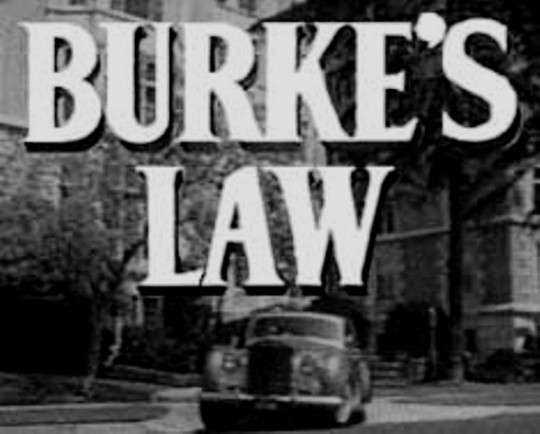

Burke’s Law - List of Guest Stars
The Special Guest Stars of “Burke’s Law” read like a Who’s Who list of Hollywood of the era. Many of the appearances, however, were no more than one scene cameos. This is as complete a list ever compiled of all those who even made the briefest of appearances on the series.
Beverly Adams, Nick Adams, Stanley Adams, Eddie Albert, Mabel Albertson, Lola Albright, Elizabeth Allen, June Allyson, Don Ameche, Michael Ansara, Army Archerd, Phil Arnold, Mary Astor, Frankie Avalon, Hy Averback, Jim Backus, Betty Barry, Susan Bay, Ed Begley, William Bendix, Joan Bennett, Edgar Bergen, Shelley Berman, Herschel Bernardi, Ken Berry, Lyle Bettger, Robert Bice, Theodore Bikel, Janet Blair, Madge Blake, Joan Blondell, Ann Blyth, Carl Boehm, Peter Bourne, Rosemarie Bowe, Eddie Bracken, Steve Brodie, Jan Brooks, Dorian Brown, Bobby Buntrock, Edd Byrnes, Corinne Calvet, Rory Calhoun, Pepe Callahan, Rod Cameron, Macdonald Carey, Hoagy Carmichael, Richard Carlson, Jack Carter, Steve Carruthers, Marianna Case, Seymour Cassel, John Cassavetes, Tom Cassidy, Joan Caulfield, Barrie Chase, Eduardo Ciannelli, Dane Clark, Dick Clark, Steve Cochran, Hans Conried, Jackie Coogan, Gladys Cooper, Henry Corden, Wendell Corey, Hazel Court, Wally Cox, Jeanne Crain, Susanne Cramer, Les Crane, Broderick Crawford, Suzanne Cupito, Arlene Dahl, Vic Dana, Jane Darwell, Sammy Davis Jr., Linda Darnell, Dennis Day, Laraine Day, Yvonne DeCarlo, Gloria De Haven, William Demarest, Andy Devine, Richard Devon, Billy De Wolfe, Don Diamond, Diana Dors, Joanne Dru, Paul Dubov, Howard Duff, Dan Duryea, Robert Easton, Barbara Eden, John Ericson, Leif Erickson, Tom Ewell, Nanette Fabray, Felicia Farr, Sharon Farrell, Herbie Faye, Fritz Feld, Susan Flannery, James Flavin, Rhonda Fleming, Nina Foch, Steve Forrest, Linda Foster, Byron Foulger, Eddie Foy Jr., Anne Francis, David Fresco, Annette Funicello, Eva Gabor, Zsa Zsa Gabor, Reginald Gardiner, Nancy Gates, Lisa Gaye, Sandra Giles, Mark Goddard, Thomas Gomez, Pedro Gonzalez Gonzalez, Sandra Gould, Wilton Graff, Gloria Grahame, Shelby Grant, Jane Greer, Virginia Grey, Tammy Grimes, Richard Hale, Jack Haley, George Hamilton, Ann Harding, Joy Harmon, Phil Harris, Stacy Harris, Dee Hartford, June Havoc, Jill Haworth, Richard Haydn, Louis Hayward, Hugh Hefner, Anne Helm, Percy Helton, Irene Hervey, Joe Higgins, Marianna Hill, Bern Hoffman, Jonathan Hole, Celeste Holm, Charlene Holt, Oscar Homolka, Barbara Horne, Edward Everett Horton, Breena Howard, Rodolfo Hoyos Jr., Arthur Hunnicutt, Tab Hunter, Joan Huntington, Josephine Hutchinson, Betty Hutton, Gunilla Hutton, Martha Hyer, Diana Hyland, Marty Ingels, John Ireland, Mako Iwamatsu, Joyce Jameson, Glynis Johns, I. Stanford Jolley, Carolyn Jones, Dean Jones, Spike Jones, Victor Jory, Jackie Joseph, Stubby Kaye, Monica Keating, Buster Keaton, Cecil Kellaway, Claire Kelly, Patsy Kelly, Kathy Kersh, Eartha Kitt, Nancy Kovack, Fred Krone, Lou Krugman, Frankie Laine, Fernando Lamas, Dorothy Lamour, Elsa Lanchester, Abbe Lane, Charles Lane, Lauren Lane, Harry Lauter, Norman Leavitt, Gypsy Rose Lee, Ruta Lee, Teri Lee, Peter Leeds, Margaret Leighton, Sheldon Leonard, Art Lewis, Buddy Lewis, Dave Loring, Joanne Ludden, Ida Lupino, Tina Louise, Paul Lynde, Diana Lynn, James MacArthur, Gisele MacKenzie, Diane McBain, Kevin McCarthy, Bill McClean, Stephen McNally, Elizabeth MacRae, Jayne Mansfield, Hal March, Shary Marshall, Dewey Martin, Marlyn Mason, Hedley Mattingly, Marilyn Maxwell, Virginia Mayo, Patricia Medina, Troy Melton, Burgess Meredith, Una Merkel, Dina Merrill, Torben Meyer, Barbara Michaels, Robert Middleton, Vera Miles, Sal Mineo, Mary Ann Mobley, Alan Mowbray, Ricardo Montalbán, Elizabeth Montgomery, Ralph Moody, Alvy Moore, Terry Moore, Agnes Moorehead, Anne Morell, Rita Moreno, Byron Morrow, Jan Murray, Ken Murray, George Nader, J. Carrol Naish, Bek Nelson, Gene Nelson, David Niven, Chris Noel, Kathleen Nolan, Sheree North, Louis Nye, Arthur O'Connell, Quinn O'Hara, Susan Oliver, Debra Paget, Janis Paige, Nestor Paiva, Luciana Paluzzi, Julie Parrish, Fess Parker, Suzy Parker, Bert Parks, Harvey Parry, Hank Patterson, Joan Patrick, Nehemiah Persoff, Walter Pidgeon, Zasu Pitts, Edward Platt, Juliet Prowse, Eddie Quillan, Louis Quinn, Basil Rathbone, Aldo Ray, Martha Raye, Gene Raymond, Peggy Rea, Philip Reed, Carl Reiner, Stafford Repp, Paul Rhone, Paul Richards, Don Rickles, Will Rogers Jr., Ruth Roman, Cesar Romero, Mickey Rooney, Gena Rowlands, Charlie Ruggles, Janice Rule, Soupy Sales, Hugh Sanders, Tura Satana, Telly Savalas, John Saxon, Lizabeth Scott, Lisa Seagram, Pilar Seurat, William Shatner, Karen Sharpe, James Shigeta, Nina Shipman, Susan Silo, Johnny Silver, Nancy Sinatra, The Smothers Brothers, Joanie Sommers, Joan Staley, Jan Sterling, Elaine Stewart, Jill St. John, Dean Stockwell, Gale Storm, Susan Strasberg, Inger Stratton, Amzie Strickland, Gil Stuart, Grady Sutton, Kay Sutton, Gloria Swanson, Russ Tamblyn. Don Taylor, Dub Taylor, Vaughn Taylor, Irene Tedrow, Terry-Thomas, Ginny Tiu, Dan Tobin, Forrest Tucker, Tom Tully, Jim Turley, Lurene Tuttle, Ann Tyrrell, Miyoshi Umeki, Mamie van Doren, Deborah Walley, Sandra Warner, David Wayne, Ray Weaver, Lennie Weinrib, Dawn Wells, Delores Wells, Rebecca Welles, Jack Weston, David White, James Whitmore, Michael Wilding, Annazette Williams, Dave Willock, Chill Wills, Marie Wilson, Nancy Wilson, Sandra Wirth, Ed Wynn, Keenan Wynn, Dana Wynter, Celeste Yarnall, Francine York.
7 notes
·
View notes
Photo
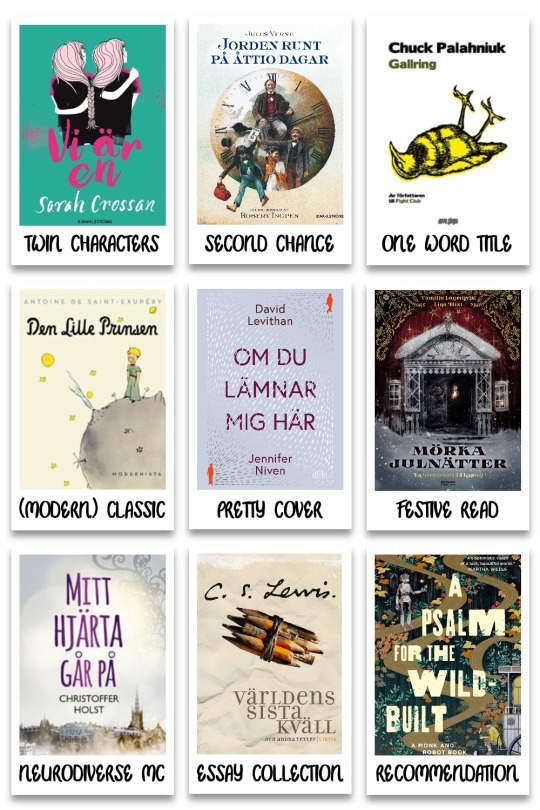
I did the studyblr w/knives winter mini reading challenge! (ノ´ヮ`)ノ*: ・゚
(~list of books + comments under the cut~)
One - Sarah Crossan
I think this was the book I finished the fastest; both the theme and the poetic way of writing piqued my interest and made it near impossible to put it away once I’d started reading.
Around the world in 80 days - Jules Verne, illustrated by Robert Ingpen
A classic that I tried reading in a simpler version as a 4th grader, I think? Then I saw that @aroundtheworldwithphillyfogg were going to do a thing with it and it made me want to read it for real. I had a great time this time around, and Ingpen’s drawings made it even more fun!
Lullaby - Chuch Palahniuk
A friend got me to read “Fight club” and since I liked it I felt like reading another one of the author’s stories - this was the only other one translated into swedish, and it was just as weird, dark and intriguing as “Fight club”.
The little prince - Antoine de Saint-Exupéry
This book is a gem, and I have to agree with what I’ve heard a lot of people say about this book - you do find something new to marvel at every time you re-read it!
Take me with you when you go - David Levithan & Jennifer Niven
Sibling relationships (especially good ones) are my weakness, which is why I picked this book up in the first place, and I really like how it's all told through e-mails; it had me hooked until the very end!
Mörka Julnätter - Camilla Lagerqvist, illustrated by Lina Blixt
I was looking for a book with 24 chapters to make the wait for Christmas a bit more festive, and I found this one - a story about family and folklore, made perfect by the accompanying pictures!
Mitt hjärta går på - Christoffer Holst
It’s been a while since I’ve read a love story, and this was a bittersweet one with lots of charm; I quite liked how down to earth this felt despite the darker themes that were going on.
Essay collection & other short pieces - C S Lewis
C S Lewis is one of my favourite authors of all time, and this collection of essays has been standing in my familys bookshelf for a long time so I thought, why not give it a read? And while I have to admit that it was hard to keep up at times, I did enjoy it overall~
A psalm for the wild-built - Becky Chambers
A friend that I recently re-established contact with recommended me this book and even if I had to read it in english I found it to be very immersing and thought provoking. (I read the second book immediately afterwards and loved it just as much!)
#books#reading challenge#studyblr w/knives reading challenge#I went with the swedish covers because they were the ones I had#and I thought that it might be fun for others to see too?#(>w<)💗
10 notes
·
View notes
Text

i don't start shit
ainda me lembro de encontrar com river liu nos corredores de acadia high! ele era tão parecido com booboo stewart, mas, atualmente, aos 30 anos, me lembra muito mais lewis tan. também fiquei sabendo que atualmente é radialista/dono de bar e que ainda é gentil e solitário. uma pena acabar encontrando ele assim… não é possível que esteja envolvido com a morte de idris niven, certo?
but i can tell you how it ends
flores mortas na varanda, contas na mesa da cozinha, olhos cansados, bloco de notas e caneta nos bolsos, câmera analógica, rádio ligado, caminhonete antiga, conversa com estranhos, cerveja não tão gelada, luz néon piscando de um letreiro quebrado, solidão de um bar vazio.
River sempre está com um sorriso no rosto, muito gentil e extrovertido, parece que nada pode abalar sua felicidade. No entanto, para que realmente o conhece, sabe que esse é apenas um disfarce. Usa de uma boa conversa e fofoca para mascarar sua solidão e insegurança.
INFÂNCIA
A vida de River poderia ter sido como a da maioria das crianças do orfanato em que frequentou: fingir ser uma pessoa totalmente diferente para se encaixar em uma família e suportar aqueles estranhos pelo resto de sua vida por medo da solidão. No entanto, ele nunca conseguiu tal ato e até os seus quinze anos passou por mais de cinco lares. Todas as casas em que passou eram de numerosas famílias que queriam uma criança educada, calma e que disse sim para tudo. O grande problema era que River sempre falou e questionou demais e se não fosse para obedecer, era devolvido. Também tem o fato dele nunca segurar a língua e contar tudo o que se passava dentro de casa para qualquer pessoa que lhe desse o mínimo de atenção. Não foi adotado e morou em um lar temporário até os dezoito anos.
ACADIA HIGH
De mente brilhante e boca incontrolável, o garoto extrovertido fez sua fama na Acadia High como locutor da rádio estudantil, um projeto de sua autoria que no início anunciava apenas os eventos acadêmicos, mas rapidamente escalou para algo muito maior. Onde seria a próxima festa, quem estava namorando quem e outros assuntos banais que todo adolescente queria saber era anunciado pela voz risonha e convidativa de River. Amigo de todo mundo, costumava andar sempre com seu caderninho e caneta. Sabia tudo sobre todos, mas se fechava quando o assunto virava ele.
FACULDADE
Após muito esforço e ajuda de programas sociais, conseguiu uma bolsa de estudos Universidade de Sussex para cursar Comunicação Social. Dividia as horas de estudo com os diversos trabalhos temporários que arranjava para poder se manter. Manteve contato com quase todos os colegas de turma, era o primeiro a confirmar presença em qualquer festa ou reunião em que era convidado e o primeiro a ir embora. Começou a trabalhar em uma das rádios mais famosas de Brighton antes mesmo da sua formatura e aos poucos, foi conquistando seu espaço.
DIAS ATUAIS
Nunca na história do rádio local um programa onde os ouvintes contavam sua história tinha tanta audiência. Patrocinado por marcas famosas e tendo passando no horário nobre, o “Conversas entre Amigos” tinha a proposta de contar de forma leve e descontraída os acontecimentos cotidianos dos cidadãos de Brighton. River era entre os três que apresentavam o locutor mais popular, por isso o espanto quando em uma quarta feira de 2021, foi anunciado no programa que ele não fazia mais parte da equipe. Não foi dados mais detalhes, apenas que “divergências administrativas” causaram a saída de Liu da empresa. A história verdadeira: River estava tendo um caso com a esposa de um dos donos da rádio desde a sua primeira semana de trabalho no local e alguém tirou fotos dos dois juntos. Para a história não ficar mal para o corno, a causa do desligamento foi por “ato de indisciplina”, no entanto, a história sobre a traição logo se espalhou.
Após a demissão não conseguiu emprego nas rádios da região, seu filme estava queimado em todo o mercado. Investiu todas as suas economias no “willow”, um antigo posto de gasolina na parte mais afastada da cidade que havia sido usado por diversas como ponto de encontro para festas privadas no ensino médio. O local foi reformado e funciona como uma loja de conveniência e bar na parte de baixo, o primeiro andar é a atual casa de River. Por não está na rota de bares badalados recebe poucos, mas fiéis clientes.
IDRIS NIVEN
“E uma última informação, caros ouvintes. Meu amigo Idris Niven! Deixaram um bilhete aqui na sede de nossa humilde rádio para você. Será que é uma admiradora secreta? Olha, se eu fosse você vinha correndo, vai que essa é a sua grande chance de FINALMENTE dar seu primeiro beijo?” Um comentário que para River era bobo , virou assunto na escola durante meses. A sua relação com Idris não era exatamente uma amizade, trocavam algumas palavras nos corredores, sentavam na mesma mesa quando o refeitório estava lotado e até chegaram a matar aula juntos. Esse mínimo de interação fez River acreditar que poderia fazer e contar piadas sobre Idris como fazia com seus amigos. A vida dele já não era fácil e só piorou depois do acontecido, o que fez eles se afastarem de vez. Como o tempo ele esqueceria tudo aquilo, certo? Errado.
Nos anos seguintes, o garoto aparecia no campus da universidade e depois na porta da rádio alegando ter uma “história bombástica” e sempre era ignorado. Até o dia em que ele descobriu tudo. River sempre contava e descobria histórias sobre os outros, ninguém nunca soube nada sobre ele. Sua vida era um livro fechado dentro de uma caixa enterrada a sete palmos do chão.
Em um dos seus encontros suspeitou que seu carro estivesse sendo seguido, porém achou que era paranoia de sua cabeça. Quando seu caso com a esposa do chefe veio à tona, era óbvio que aquela era obra do maldito Niven que passou a frequentar o willow diariamente como forma de provocação. Idris sempre era expulso do bar, mas sempre voltava. Até que em um certo dia de setembro, ele não apareceu.
CURIOSIDADES
River adora conversar, menos quando o assunto é ele.
Se sente muito sozinho e amargurado por não ter uma família, mas não admite isso.
Nunca teve um relacionamento sério, fora o caso que tinha com a esposa do seu chefe, namorou apenas por alguns meses uma garota na escola e um rapaz nos primeiros anos da faculdade. Já perdeu as esperanças de viver um grande amor.
Adora o contato com a natureza, sempre que pode sai para descobrir novas trilhas na região ou acampar.
Tem uma caminhonete vermelha muito antiga que passa mais tempo na oficina que em circulação.
Odeia podcasts.
willow - bar & grocery
• tipo: bar e loja de conveniência.
• breve descrição: O casebre de madeira com duas pequenas bombas de gasolina na frente se destaca na estrada com o grande letreiro em néon. Inaugurado em meados da década de 80 e usado ilegalmente por estudantes após seu fechamento, passou por uma pequena reforma e foi reaberto em 2022. A fachada um pouco antiga pode não parecer convidativa. A loja de conveniência divide espaço com as mesas e balcão do bar.
#ahk: intro#ainda não fiz uma lista de wc mas quem quiser combinar plot#pode colar no chat que estamos aceitando tudo <3#˚ ⁎ ⁺ 𝐛𝐚𝐜𝐤 𝐭𝐨 𝟐𝟎𝟎𝟗 ˳ ( + development ) ⋆ 📻#˚ ⁎ ⁺ 𝒇𝒆𝒆𝒍𝒊𝒏𝒈 𝟐𝟎𝟐𝟐 ˳ ( + development ) ⋆ ☕
9 notes
·
View notes
Text
Some of the recs I wrote down from the Worldcon Panel “SFF Murder Mysteries” - this isn’t all of the books that the panelists (and some audience members) mentioned, just the ones I that thought I might hunt down for myself in the future.
"The Sleepless" by Victor Manibo
Series "Yellow Thread Street" by William Marshall. (A police procedural with wackiness, one of which is about a Science Fiction convention. That novel is named "Sci Fi".)
"Cat at a Kiwi Con" by Karen Douglas. (Midnight Lewis is a sentient cat, and a detective.)
"The Body Scout" by Lincoln Michel
Series "Shotguns and Sorcery" by Matt Forbeck
TV Show: "The Dead Zone" - at least, the first three seasons.
"The Patchwork Girl" by Larry Niven
“The Caves of Steel" by Isaac Asimov
"The Needle" by Hal Clement
"Lord Darcy" by Randall Jarret
Also, there's three separate anthologies by three separate publishers about Sherlock Holmes in other dimensions out there.
4 notes
·
View notes
Text
Just saw someone describe a “holy trinity” of fantasy authors as J. R. R. Tolkien, C. S. Lewis, and Mervyn Peake. Um…what? Lewis is not on any adult’s list of most significant fantasy writers (except “significant to my childhood”, I suppose).
And Peake’s work isn’t really fantasy at all; Castle Gormenghast is a Ruritania where what is basically the British aristocracy practice what are essentially the rites of Chinese ancestor-worship. (“So, the Church of England?” I might say, were I slightly meaner than I actually am.) Ruritania is not fantasy.
I would say, like, Tolkien, Robert Howard, and…Ursula K. LeGuin? Maybe?
I mean I’d like to say Fritz Leiber or Clark Ashton Smith for the third one but the latter, particularly, is very niche, and the former is just Howard as a slightly better-rounded person. (Huh, apparently Leiber coined “sword and sorcery”. Who knew.)
Jack Vance casts a disproportionately long shadow by inventing the magic system D&D uses (but not inventing Dying Earth fantasy, because Smith’s Zothique already did). Larry Niven, of all fucking people, introduced the anthropological concept of “mana”, used by everyone that doesn’t use Vancian. (I still wanna know why anthropologists egregiously overgeneralized the specifically Polynesian concept of mana, even though we already have a word for that, namely “numen”, technical term of Roman religion.)
And then there’s Roger Zelazny, Poul Anderson, and (ugh) Marion Zimmer Bradley (I hated her before I knew she deserved it, because she always came off as “John Norman for lesbians”; now we just know she did in real life what Norman only fantasized about like a creepo). C. J. Cherryh is underappreciated as a fantasy writer (and in every other genre she writes in), but I still think we have to give it to LeGuin, since she’s the only one as well-known as Tolkien or Howard. (Which is why Vance and Niven don’t get it, despite everyone using mana or occasionally Vancian: nobody knows those are theirs.)
4 notes
·
View notes
Text
New in December - Hallmark Movies Now

USS Christmas (2020)
Starring Jen Lilley, Trevor Donovan, and Barbara Niven
Hallmark Movies & Mysteries / Miracles of Christmas
Hailey Dean Mysteries: A Prescription for Murder (2019)
Starring Kellie Martin, Viv Leacock, Matthew MacCaull, Caitlin Stryker, Lauren Holly, Lucia Walters, Gabrielle Miller, Bruce Dawson, Johannah Newmarch, Nathan Witte, Sarah Smyth, and Nancy Grace
Hallmark Movies & Mysteries / Movie 8 of 9
Home for Christmas Day (2017)
Starring Catherine Bell and Victor Webster
Hallmark Movies & Mysteries
Falling for Vermont (2017)
Starring Julie Gonzalo and Benjamin Ayres
Hallmark Channel / Fall Harvest
Return to Christmas Creek (2018)
Starring Tori Anderson, Stephen Huszar, Steven Weber, and Kari Matchett
Hallmark Movies & Mysteries / Miracles of Christmas
Mystery 101: Killer Timing (2021)
Starring Jill Wagner, Kristoffer Polaha, Robin Thomas, and Erin Cahill
Hallmark Movies & Mysteries / Movie 6 of 7
Christmas at the Palace (2018)
Starring Merritt Patterson, Andrew Cooper, and Brittany Bristow
Hallmark Channel / Countdown to Christmas
Enchanted Christmas (2017)
Starring Alex and Carlos PenaVega
Hallmark Channel / Countdown to Christmas
Our Christmas Journey (2021)
Starring Holly Robins Peete, Lyriq Bent, Aloma Wright, and Nik Sanchez
Hallmark movies & Mysteries / Miracles of Christmas
The Angel Tree (2020)
Starring Jill Wagner and Lucas Bryant
Hallmark Movies & Mysteries / Miracles of Christmas
Jingle Bell Bride (2020)
Starring Julie Gonzalo and Ronnie Rowe
Hallmark Channel / Countdown to Christmas
Christmas Scavenger Hunt (2019)
Starring Kim Shaw, Kevin McGarry, and Tom Arnold
Hallmark Channel / Countdown to Christmas
Autumn Dreams (2015)
Jill Wagner, Colin Egglesfield, and Matty Finochio
Hallmark Channel / Fall Harvest
Murder She Baked: Just Desserts (2017)
Starring Alison Sweeney, Cameron Mathison, Barbara Niven, Lisa Durupt, Gabriel Hogan, Toby Levins, David Lewis, James Rittinger, Karen Holness, Tammy Gillis, and Viv Leacock
Hallmark Movies & Mysteries / Movie 5 of 5
A Christmas for the Books (2019)
Starring Chelsea Kane, Drew Seeley, and Chad Connell
Hallmark Movies & Mysteries / Miracles of Christmas
December 1
Christmas in Vienna (2020)
Starring Sarah Drew and Brennan Elliott
Hallmark Channel / Countdown to Christmas
Boyfriends for Christmas Past (2021)
Starring Catherine Haena Kim, Raymond Ablack, and Paul Sun-Hyung Lee
Hallmark Channel / Countdown to Christmas
Hailey Dean Mysteries: Killer Sentence (2019)
Starring Kellie Martin, Viv Leacock, Matthew MacCaull, Lauren Holly, Lucia Walters, and Matty Finochio
Hallmark Movies & Mysteries / Movie 9 of 9
December 2
A December Bride (2016)
Starring Jessica Lowndes and Daniel Lissing
Hallmark Channel / Countdown to Christmas
Christmas in Evergreen (2017)
Starring Ashley Williams, Teddy Sears, Holly Robinson Peete, Jaeda Lily Miller, Marcus Rosner, Barbara Niven, Malcolm Stewart, and Rukiya Bernard
Hallmark Channel / Movie 1 of 4 / Countdown to Christmas
Falling For You (2018)
Starring Taylor Cole and Tyler Hynes
Hallmark Channel / Fall Harvest
December 15
Sister Swap: Christmas in the City (2021)
Starring Ashely Williams, Kimberly Williams-Paisley, Kevin Nealon, Keith D. Robinson, Anna Hollbrook, and Jim Byrnes
December 22
Christmas in Evergreen: Bells Are Ringing (2020)
Starring Rukiya Bernard, Antonio Cayonne, Holly Robinson Pete, Barbara Niven, Malcom Stewart, Marci T. House, Marlon Kazadi, Colin Lawrence, Ashley Williams, ad Jaeda Lily Miller
Hallmark Channel / Movie 4 of 4 / Countdown to Christmas
Eight Gifts of Hanukkah (2021)
Starring Inbar Lavi and Jake Epstein
Hallmark Channel / Countdown to Christmas
The Wedding Veil (2022)
Starring Lacey Chabert, Kevin McGarry, Alison Sweeney, Autumn Reeser, Karen Kruper, Fiona Vroom, Catherine Lough Haggquist, and Greg Rogers
Hallmark Channel / New Year New Movies
And More

4 notes
·
View notes
Photo
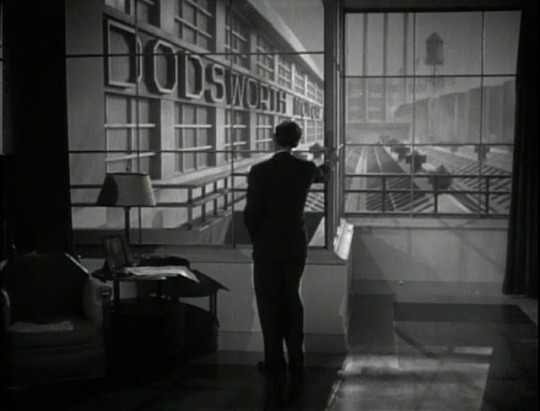
Walter Huston in Dodsworth (William Wyler, 1936)
Cast: Walter Huston, Ruth Chatterton, Mary Astor, Paul Lukas, David Niven, Gregory Gaye, Maria Ouspenskaya, Spring Byington, Harlan Briggs, Odette Myrtil, Kathryn Marlowe, John Payne. Screenplay: Sidney Howard, based on his play adapted from a novel by Sinclair Lewis. Cinematography: Rudolph Maté. Art direction: Richard Day. Music: Alfred Newman.
I have a feeling that Dodsworth is not quite as well known as it ought to be. It's one of the few Hollywood dramas of the 1930s that seem to have been made for grownups, avoiding melodrama and sentimentality in its treatment of marriage and growing old, and sidestepping the Production Code's infantilizing attitudes toward adultery and divorce. And most of all, it has a wonderful performance by Walter Huston, who was nominated for an Oscar but lost, rather shamefully, to Paul Muni's hammy turn in The Story of Louis Pasteur (William Dieterle, 1936). Huston's Sam Dodsworth is a captain of industry, founder of an automobile company, who decides to sell the business and spend the rest of his life figuring out what to do with himself. His wife, Fran (Ruth Chatterton), knows exactly what she wants to do: Sail to Europe and flirt with all those interesting men who can't be found in the Midwestern city of Zenith -- which was also the setting for Sinclair Lewis's novel Babbitt, whose title character became a byword for Midwestern fatuousness. Fran is a few years younger than Sam -- Chatterton was 44, Huston 53 -- and unwilling to grow old gracefully, claiming to be 35 and unwilling to reveal that she has just become a grandmother. Opportunity presents itself immediately on shipboard in the form of a British military officer (David Niven), but after flirting shamelessly with him, Fran takes fright when they reach England and he wants to take their relationship another step. But when the Dodsworths move on to Paris, Fran becomes bolder and after Sam, bored with life in Europe, returns alone to the United States for a visit with their daughter and her husband, she begins an affair with a suave European (Paul Lukas). Getting wind of the affair, Sam returns to Paris and confronts Fran, who breaks it off. But their efforts to patch things up fail and Fran asks him for a divorce. In Vienna she finds another suitor, a younger, rather effete aristocrat named Kurt Von Obersdorf (Gregory Gaye), and is ready to marry him once the divorce goes through. Meanwhile, Sam travels on his own and in Naples is reunited with Edith Cortright (Mary Astor), a divorcee he had met earlier. Sam moves in with Edith in the villa she is renting, but their happiness is interrupted by Fran's misery: Kurt's mother, the baroness (Maria Ouspenskaya), forbids their marriage on the grounds that Fran is not only divorced but also too old to provide an heir for the family line. A distraught Fran, facing up to failure, urges Sam to return to America with her, presenting him with the dilemma of continuing a marriage that has proved hopeless or exploring the new vistas that have opened for him. Lewis's novel is more in the satirical vein of Babbitt than Sidney Howard's screenplay, based on his Broadway play, which also starred Huston. It evokes Henry James's stories about American encounters with Europeans. William Wyler, with his smooth, unobtrusive professionalism, is the perfect director for the film, which was made under the aegis of producer Samuel Goldwyn, who aimed for polish and prestige and for once achieved it. Lewis's novel was published in 1929, but by the time Dodsworth was filmed, Nazism was on the rise in Germany and fascism had taken hold in Italy, so Sam and Edith's dream of traveling the world together feels more than a little naive in the context of the period. The only reference to the rumblings of war perceptible in the film comes in Sam's comment that he prefers the United States because there are "no soldiers along the Canadian border."
1 note
·
View note
Text
Science-Fiction. Sorted.
Key: strikethrough means duplicate to be deleted ; bold means recommended ; I have not listened to everything.
A-C
Abbott, Edwin A - Flatland (1884)
Banks, Iain M - Use of Weapons (1990)
Bear, Greg - Eon (1985)
Bester, Alfred - The Demolished Man (1953)
Bradbury, Ray - The Martian Chronicles
Brin, David - Startide Rising (1983)
Brin, David - The Postman (1985)
Brin, David - The Uplift War (1987)
Dick, Philip K
Dick, Philip K - UBIK (1969)
Dick, Phillip K - The Three Stigmata of Palmer Eldritch 1964
Philip K Dick - VALIS - 1981
Dick, Philip K - Broken Bubble (1988)
Dick, Philip K - Do Androids Dream Of Electric Sheep (1966)
Dick, Philip K - Flow My Tears, the Policeman Said (1974)
Dick, Philip K - Interviews [ note: unsorted ]
Dick, Philip K - Mr. Spaceship (1953)
Dick, Philip K - Of Withered Apples
Dick, Philip K - Radio Free Albemuth (1976)
Dick, Philip K -The Man in the High Castle (1962)
Dick, Philip K - The Minority Report and Other Stories (2002)
Dick, Philip K - Ubik (1969)
Dick, Phillip K -A Scanner Darkly (1977)
Do Androids Dream of Electric Sheep by Philip K. Dick - BBC Radio
E-G
Effinger, George Alec - A Fire In The Sun (Budayeen 2)
Effinger, George Alec - The Exile Kiss (Budayeen 3)
Effinger, George Alec - When Gravity Fails (Budayeen 1)
Farmer, Philip Jose - To Your Scattered Bodies Go (1971)
Gibson, William [note: incomplete - have misfiled some]
Gibson, William - All Tomorrows Parties
Count Zero (1986) (96kb mp3)
Gibson, William - Idoru
Neuromancer (1984) [ note: read by the author ]
Pattern Recognition (2003)
Virtual Light
The Peripheral - William Gibson (2014)
Agency
Alien III An Audible Original Drama
H -
Haldeman, Joe - The Forever War
Hamilton, Peter F - The Reality Dysfunction (1996)
Herbert, Frank - Dune
Keyes, Daniel - Flowers for Algernon
LeGuin, Ursula - The Dispossessed - 1974
LeGuin, Ursula - The Lathe of Heaven - 1971
LeGuin, Ursula - The Left Hand Of Darkness (1969)
LeGuin, Ursula - The Left Hand of Darkness (Alt Copy)
LeGuin, Ursula - The Word For The World Is Forest (1976)
Lem, Stanislaw - Solaris (1950)
L'Engle, Madelein - A Wrinkle in Time
Lewis, CS - Out of the Silent Planet (1938)
May, Julian - The Many-Colored Land (1981)
McDevitt, Jack - Chindi
McDevitt, Jack - Engines_of_god
McDevitt, Jack - Time Travelers Never Die -2009
McDevitt, Jack - Echo- Jack McDevitt
McDevitt, Jack - Seeker
McDevitt, Jack - The Devil's Eye
McDevitt, Jack - Polaris-Jack McDevitt
McDevitt, Jack - talentforwar.m4b
McDonald, Ian - Hyberabad Days
Morgan, Richard - Altered Carbon (2002)
Niven, Larry - Ringworld - 1970
Niven & Pournelle - The Mote in God's Eye
Pohl, Frederik - Gateway
Powers, Tim - On Stranger Tides
Powers, Tim - Declare
Powers, Tim - The Anubis Gates
Powers, Tim - Three Days to Never
Reynolds, Alasdair Revelation Space - Alastair Reynolds - 2000
Robinson, Kim Stanley - Aurora.m4a
Robinson, Kim Stanley - Mars Trilogy [AudioBooks]
Robinson, Kim Stanley - New York 2140
Robinson, Kim Stanley - The Years of Rice and Salt
Robinson, Kim Stanley - Three Californias Triptych 01 - The Wild Shore [Rudnicki]
Robinson, Kim Stanley- Three Californias Triptych 02 - The Gold Coast [Rudnicki]
Robinson, Kim Stanley- Three Californias Triptych 03 - Pacific Edge [Rudnicki]
Rucker, Rudy
Rucker, Rudy - Ware 1 - Software
Rucker, Rudy - Ware 2 - Wetware
Rucker, Rudy - Ware 3 - Freeware
Rucker, Rudy - Ware 4 - Realware
Sagan, Carl - Contact
Scalzi, John - Old Man's War (2005)
Shelley, Mary - Frankenstein (1818)
Simak, Clifford - Way Station (1963)
Simmons, Dan - Hyperion
Simmons, Dan - Ilium (2003)
Smith, E E 'Doc' - Gray Lensman (1940)
Stephenson, Neal - The Diamond Age (1995)
Sterling, Bruce - Mirrorshades - The Cyberpunk Anthology
Wells, HG - The Invisible Man (1897)
Wells, HG - The War of the Worlds
Wells, Martha - Artifical condition
Willis, Connie - Doomsday Book (1992)
Wyndham, John - The Day of the Triffids (1951)
Wyndham, John - The Chrysalids
Verne, Jules - Journey to the Center of the Earth (1864)
Vinge, Vernor - A Fire Upon the Deep (1991)
0 notes
Photo

Galaxy Class Entering Orbit by Lewis Niven
18 notes
·
View notes
Photo
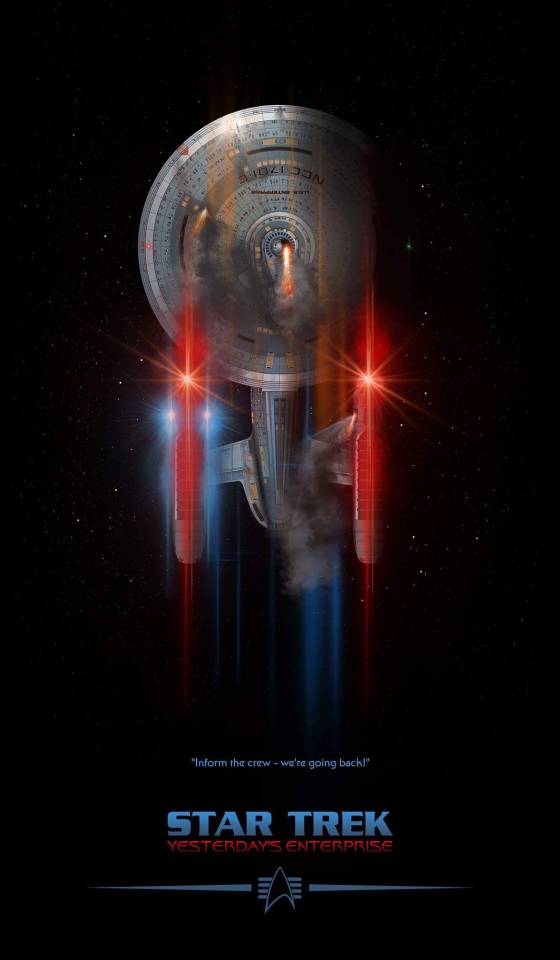
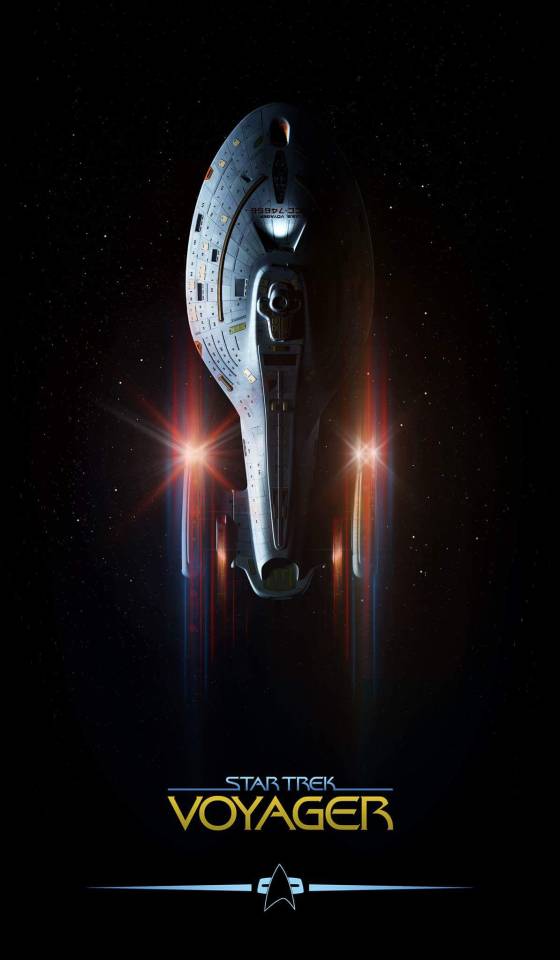
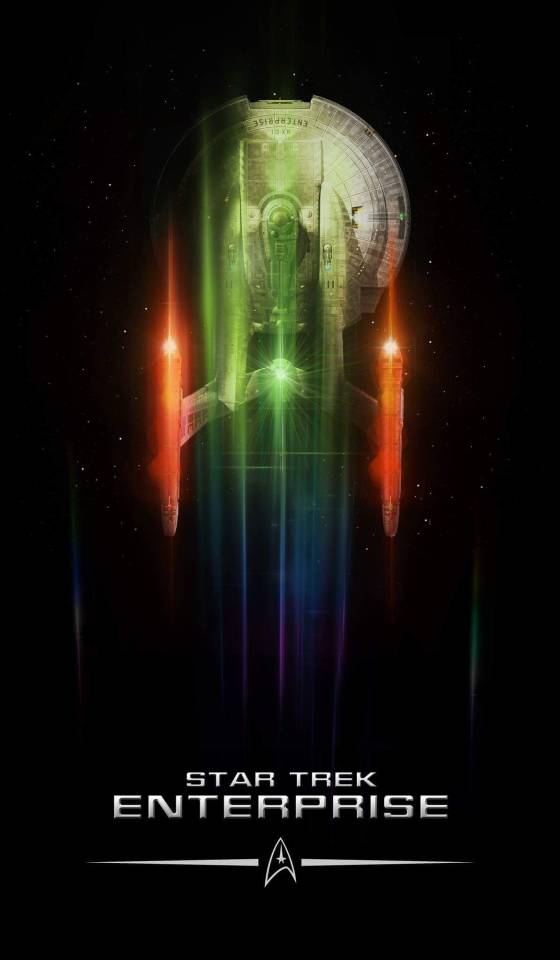
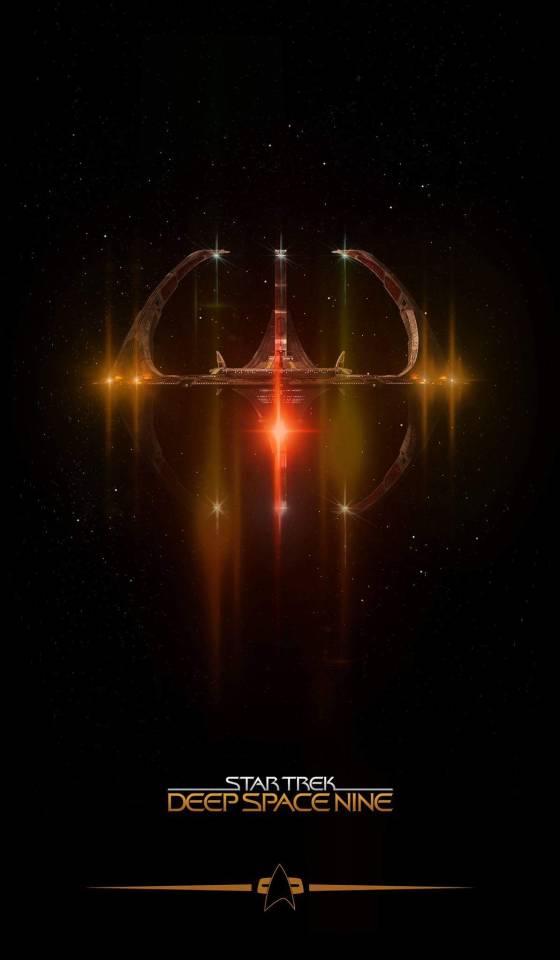

Art by Lewis Niven.
31 notes
·
View notes